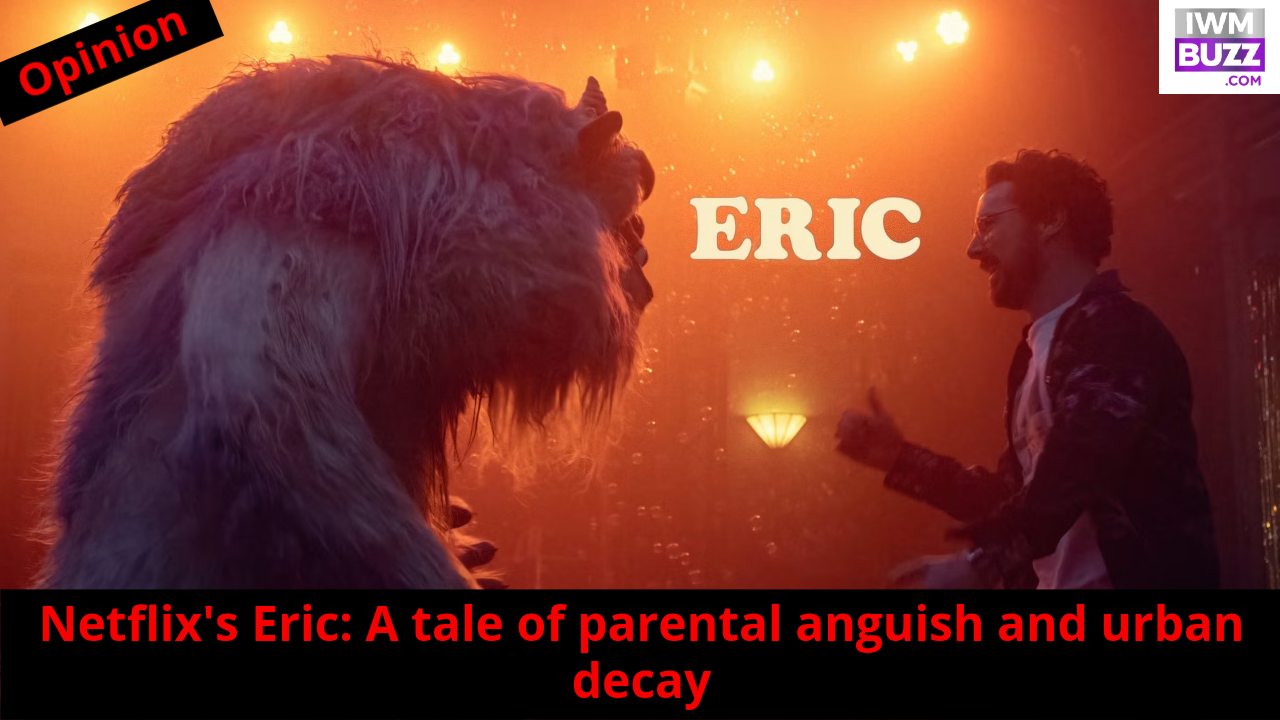Netflix’s six-part miniseries Eric finds Benedict Cumberbatch in a familiar yet electrifying territory. The British thespian once more steps into the shoes of a mortified genius. Reminiscent of his portrayals of Alan Turing in The Imitation Game and Sherlock Holmes in Sherlock, Cumberbatch’s Vincent in Eric is a father ensnared by guilt and regret.
Set against the gritty backdrop of 1985 New York, Vincent is a gifted puppeteer behind the beloved children’s show Good Day, Sunshine!. His idyllic facade, however, masks a troubled reality. When his nine-year-old son, Edgar, vanishes off the streets, Vincent and his wife Cassie, played by Gaby Hoffman, are plunged into a harrowing ordeal. This abduction spirals into a labyrinthine exploration of the city’s ministerial, social, and police systems.
A dive into the ‘Unconventional’
The brilliance of Eric lies in its delicate balance of the peculiar with the perceptible. Abi Morgan, the Welsh screenwriter famed for The Iron Lady and Shame, imbues the series with her signature theme of the manufactured persona. Vincent, the vibrant puppeteer of the beloved children’s show Good Day, Sunshine!, embodies this duality. His public persona contrasts sharply with his private turmoil. The abduction of his nine-year-old son, Edgar, triggers a descent into obsession, leading Vincent to create Eric, a lumbering, shaggy-haired puppet. As Vincent interacts with Eric, this imagined figure becomes a significant, albeit surreal, presence in his life. This whimsical yet poignant element sets Eric apart, adding layers of depth to its narrative.
The depths of parental despair
In its exploration of the missing-children drama genre, Eric plunges into the visceral depths of parental grief with exceptional finesse. The series masterfully encapsulates the multifaceted nature of such profound loss, evoking the emotionally charged narratives found in seminal works like The Lovely Bones and Mystic River. The nuanced portrayal of Vincent and Cassie’s suffering artfully conveys their horror, desperation, and the forlorn glimmers of hope that ensue after Edgar’s disappearance. Cumberbatch’s depiction of Vincent’s relentless quest and gradual descent into madness is strikingly poignant, imbuing the series with a resonant emotional gravity that lingers long after the final frame.
City’s underbelly exposed
The narrative’s setting in 1980s New York is no mere backdrop but a character in its own right. This was a period marked by socio-economic upheaval, with rising crime rates, the crack cocaine epidemic, and pervasive police corruption. The series vividly captures this atmosphere, offering a gritty and unvarnished look at the city’s various strata. Comparisons can be drawn to the atmospheric depth of Taxi Driver and Serpico, where New York itself is portrayed as a character, influencing and shaping the narrative.
The socio-political dynamics of the time are keenly observed. Edgar, a white child from a well-off family, receives significant media attention, a rugged comparison to the countless missing black children whose disappearances remain largely ignored. This aspect of the story is reminiscent of the racial and social commentaries found in When They See Us and Do the Right Thing, highlighting the systemic inequalities that plague the city.
Eric is more than a psychological thriller; it is a profound meditation on loss, identity, and the facades we construct. With Cumberbatch delivering a career-defining performance and Morgan’s nuanced writing, the series beckons viewers into a world that is as enthralling as it is unsettling. The interplay of grief and guilt, set against the raw and unforgiving landscape of 1980s New York, makes Eric a compelling watch, a testament to the power of storytelling that is at once strange and strikingly real.

